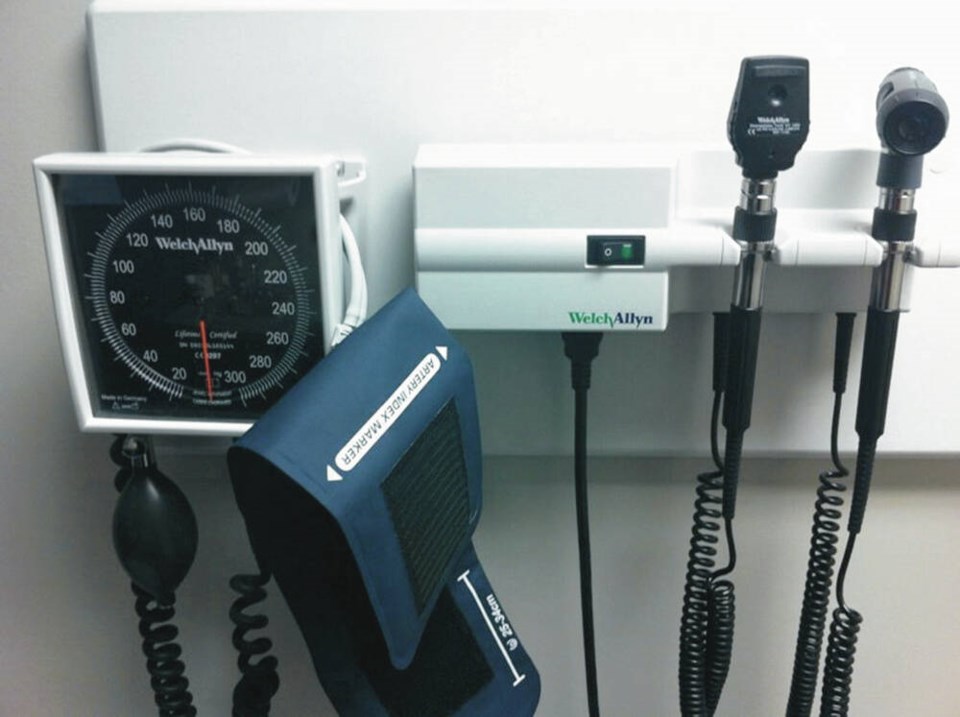Ensuring safety for each and every citizen is an essential function of all levels of government. Yet when many hundreds of citizens die each year because of a catastrophic shortfall in family practitioners, our government’s inertia, the very cause of this crisis, continues unabated.
It behaves like the Roman Emperor Nero, passively watching while the whole system is destroyed. In any private or corporate setting, our health minister would join his quixotic failed policies into the dustbin of history. Unfortunately, the vicissitudes of political life preclude such easy solutions.
According to published medical research data, about 1,500 to 2,000 British Columbians are dying each year because of having no family doctor. Countless thousands will suffer worsening symptoms due to lack of medical supervision/follow-up of their disease.
Anxiety will be endemic. All of these sequelae are more prevalent in our most vulnerable group, namely the elderly. All are preventable. Their occurrence represent a complete failure of health policies.
As a medical school teacher, I know that individual case histories can be far more instructive and illuminating than didactic presentations, so I’ll now describe two case histories, with my comments. They sadly show the dire consequences of the depth to which our health-care system has descended.
A mother recently had to take her severely ill 17-year-old daughter to the ER at a hospital and was told by two doctors they could not help her daughter because they didn’t know anything about Crohn’s disease (which she had suffered from for years).
They prescribed an opioid for her pain and told her to call the children’s hospital. Her only local family doctor is about to retire. Her daughter will then have no medical help where she lives.
Her mother feels she may have to relocate from her lifelong home to somewhere that has a suitable hospital nearby, inevitably a more expensive location that she will have difficulty affording.
Crohn’s disease is a serious condition that usually causes lifelong severe symptoms that have a marked negative impact on quality of life. Without appropriate care, life expectancy will be reduced.
Although there is no cure, there are many medications that can help symptoms and reduce disease activity. Individual patients respond differently to these.
The drugs may be given singly or in combination. Some have significant side effects. Depending on an online physician would be both useless and potentially harmful.
This patient needs comprehensive continuing care by both a family practitioner and a specialist. The fact that they have to move in order to get any appropriate doctor is an appalling reflection on our health system. It is both a travesty and a tragedy.
This case history shows more evidence of our failed health-care system. Prescribing an opioid, with its attendant risk of addiction, as first-line therapy approaches negligence. But ER physicians are overworked and are forced to solve the immediate problem ASAP and discharge the patient pronto.
To suggest that the patient phone the children’s hospital rather than making such a referral is a gross abrogation of medical standards.
A 60-year-old woman had a history of cancer and was supposed to get regular screenings, but couldn’t because there was no GP to arrange it for several years. Recently, she started feeling ill, but walk-in clinics (whose staff didn’t understand her complex history) were unable to diagnose her.
Finally, she went to the ER after she started coughing up blood. They diagnosed her with advanced lung cancer, which had already spread to her brain and liver. She died within a month. To add insult to injury, no family practitioner was available to co-ordinate her terminal care at home.
This patient’s death might well have been prevented or postponed by regular follow-up. Picking up early cancer is precisely why no such patients should be deprived of it.
I have heard oncologists relate how they are now seeing more new patients with advanced cancer than ever before. Advanced means often untreatable. I am reminded of when I worked in Africa and encountered many patients with horribly advanced cancer.
Their country could afford no more than one doctor per 15,000 people. We are a wealthy country. We can easily afford one family practitioner per 1,000 patients. We are nowhere near that target.
Abysmal planning by our government is causing countless such deaths. If this is not negligent homicide, I don’t know what is.
This patient experienced yet another pitfall in the provision of our health-care services. Walk-in clinics are mere Band-Aids, where the ticking clock is often a driving force for the physician to cut corners. The complete medical record is seldom available in these clinics. However, the history of previous cancer and now not “feeling well” should have raised an immediate alarm to any reasonable doctor able to practise in a reasonable facility.
The provincial government, astonishingly, has made no provision in this year’s budget for any extra funds needed to combat the doctor shortage. A recent government offer of a one-off contribution to the overhead running costs of clinics, although a move in the right direction, will have minimal impact on family practitioner availability.
As with many social issues, the most potent stimulus for change occurs with widespread public exposure and pressure. Until recently, protests about the family doctor situation were only possible by individuals, thereby guaranteeing ineffectiveness.
However, Vancouver Island is fortunate in having a recently formed and very active association, sa国际传媒 Health Care Matters (bchealthcarematters.com), whose mandate is to rigorously protest the dearth of FPs.
The greater the public support for this group, the higher chance of success so that the internationally disgraceful one-fifth of our five million population without a family practitioner will start to decline.
>>> To comment on this article, write a letter to the editor: [email protected]



